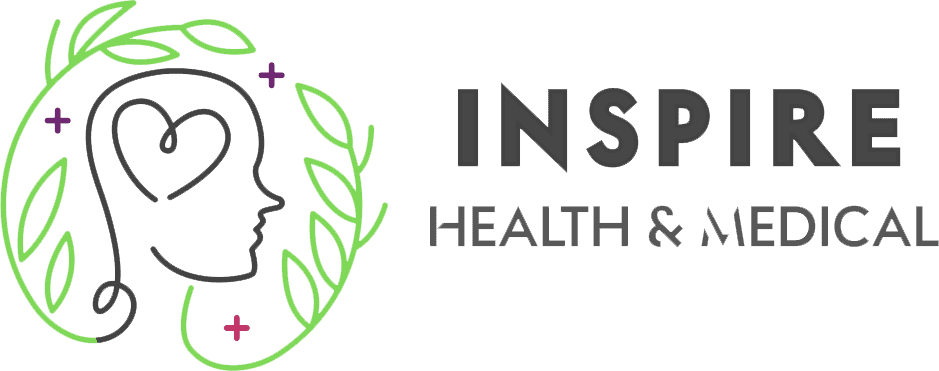Change your thoughts, change your life. We explain how cognitive behavioural therapy works and how learning how to change your thoughts can have a dramatic impact on how you feel and behave.
What is cognitive behavioural therapy?
Cognitive behavioural therapy (CBT) was developed by Aaron Beck. CBT is a talk therapy founded on the concept that if we change our thoughts (self-talk / internal dialogue) we can change how we feel and behave.
It supports the idea that your thoughts, feelings, and behaviours are all related and impact each other; either positively or negatively.
Cognitive: Refers to what you think and feel about things – Your thoughts, beliefs, and attitudes.
Behavioural: Refers to what you do in response to your thoughts, beliefs and attitudes.
Cognitive therapy deals with thought formation at three levels of cognition:
Automatic thoughts
These are thoughts we think without full awareness. They lack a check for accuracy or relevance to the present situation. If these thoughts are negative, they are known as ANTS – automatic negative thoughts.
Schemas
Shaped by childhood and other life experiences, schemas are beliefs we have accepted as true about ourselves and the world around us. Schemas can be Adaptive (helpful) or Maladaptive (unhelpful).
Conscious thoughts
A rational thought that you are very aware of and formed based on the ability to perceive a situation clearly.
Working with a CBT therapist, you’ll explore whether a thought is accurate or not and work on changing dysfunctional thoughts and behaviour patterns.
Who can cognitive behavioural therapy help?
Cognitive behaviour therapy has been found to be effective in treating a range of mental health conditions including:
- Generalised anxiety disorder
- Social anxiety disorder
- Substance use disorders
- Obsessive compulsive disorder
- Eating disorders
- Post traumatic stress disorders
- Depression
- Panic disorder
- Body dysmorphic disorder
- Bipolar disorder
However, you don’t have to be struggling with a mental health disorder to benefit from cognitive behavioural therapy. These therapy sessions are extremely useful for anyone going through a rough patch in life.

Cognitive behavior therapy allows you to talk through fears and feelings to learn how to cope productively with stressful situations and everyday events.
CBT aims to help you identify and understand inaccurate thoughts and emotions to see challenging events in a more clear and efficient manner.
Benefits of cognitive behavior therapy
The ultimate outcome of CBT is for you to live a life that is as fulfilling as possible by challenging (and ultimately changing ) unhelpful perceptions and behaviour patterns.
CBT is a practical therapy so your sessions with a therapist will leave you equipped with life-long skills to cope with stressful situations.
Benefits of CBT treatment :
- Learning to identify automatic negative thoughts (ANTS)
- Learning how reframe negative thoughts
- Overcome emotional trauma
- Gain skills manage powerful emotions like anger and sadness
- Coping with grief
- Reduced depression and anxiety
- Ability to bounce back from disappointment
- Coping better with stress and anxiety
- Improved problem-solving skills
- Learn how to set realistic goals
What can you expect in a cognitive behavioural therapy session?
During a cognitive behavioural therapy session, your therapist will work with you to:
Identify the specific problems and circumstances you’re struggling with
These stressors can be big or small, ongoing or situational.
Become aware of the beliefs and thoughts you have about these problems
We must first be aware of our thoughts before we can change them. Many of our beliefs are shaped by childhood experience (schemas) and we default to automatic negative thoughts (ANTs) in response to these beliefs.

Identify unhelpful thinking patterns and work to reframe those thoughts in a way that changes how you feel about a problem
Your therapist will help you identify dysfunctional thinking patterns – we look at these in more detail further along. Once identified, you’ll be encouraged to challenge these thoughts by asking yourself if they’re based on facts or a distorted perception of the situation.
Learning new coping behaviours and how to put them into practice
You will learn strategies and behaviour patterns for facing challenging situations with less negative thinking, depression, anxiety, and emotional distress.
Cognitive Behavioural Therapy Techniques
Your therapist will take you through various techniques to overcome and challenge negative thought patterns and encourage behavioural change.
CBT techniques include:
Practising new behaviours and coping skills
You’ll learn new skills to help you cope with life situations in different ways rather than defaulting to maladaptive behavioural reactions.
For example, to deal with an anxious situation you may learn a new grounding exercise, like running your hands under cold water, to help calm you in the moment.
Setting goals
Strengthening your goal-setting skills is a valuable tool often used in cognitive behavioural therapy.
For example, if you are depressed due to a lack of connection and friends, your therapist may work with you to set SMART goals (specific, measurable, attainable, relevant, and time-based) to establish new friendships or strengthen existing ones.
Problem solving
A CBT therapist will work with you to learn how to identify and solve problems in a 5 step process:
Step 1: Identify the problem
Step 2: Brainstorm potential solutions
Step 3: Weigh up the strengths and weaknesses of each potential solution
Step 4: Choose a solution
Step 5: Implement the solution
We’re all thrown curve balls by life. Having the ability to problem solve helps us to remain empowered and proactive in challenging situations.
Self-Monitoring
As part of your therapy, you will be given homework – including self-monitoring diary work.
Self-monitoring involves observing and keeping a diary of your thoughts, emotions, body feelings, and behaviours to share in your next session. Self-monitoring can help identify what triggers or problems arise regularly or have the most impact on your mental health.
Activity scheduling
Activity scheduling is a technique used in CBT to encourage you to focus on increasing enjoyable, mood-boosting activities by planning them in advance. This is a particularly useful technique to help treat depression.
What thinking patterns does cognitive therapy address?
Dysfunctional assumptions
Dysfunctional assumptions are a ‘set of rules’ we live by that are formed by our core beliefs. They are often expressed in statements like “If…..then…” , “should” , “must”.
For example; “If I let someone get close, then they will discover the ‘real me’ and reject me.”
These ‘rules for living’ that we’ve accepted or created are usually rigid, leave no room for exceptions and are rarely, if ever, challenged. They can lead to irrational thought patterns and negative feelings that can distort our perceptions of reality.
Cognitive distortions
In addition to dysfunctional assumptions, cognitive distortions also have a strong impact on mindset. Thoughts are not statements of fact and we can often fall into patterns of unhelpful/irrational thinking that hold us back.
A patient’s cognitive distortions are also explored and challenged during CBT treatments and examples include:
“All or nothing” thinking
Your life view and view of yourself is completely black and white, with no room for middle ground. This kind of thinking can lead you to believe you’re either successful or a total failure in life.
Overgeneralising
Overgeneralising sees you apply the outcome of one negative experience to all similar events. If you’re prone to this type of thinking, and have a bad experience, during an interview, for example, you may overgeneralise that every interview will be a failure.
Mind reading
You assume to know what another person is thinking about you or a situation. This can lead to making assumptions about what someone is thinking about us based on our own insecurities. For example, “I’m a bad public speaker, I know the client thought my presentation was terrible.”
Catastrophising
You tend to predict the worst possible outcome in a situation and this interferes with your ability to cope or take action to prevent the catastrophic outcome you fear.
Emotional reasoning
Emotional reasoning is when we base reality on how we feel rather than the facts of the situation. For example, you may feel extremely jealous of your partner and believe he is being unfaithful, although he isn’t and there is no evidence to support infidelity.
Labelling
Labelling is a cognitive distortion when you reduce yourself or others to a definition (label) based on a single event. These labels are usually negative like “failure” or “jerk”.
Mental filtering
You have a tendency to minimise the good and maximise the bad, focusing only on the negative aspects of an event and filtering out the positive ones.
Personalisation
This cognitive distortion is when you take something personally that isn’t meant to be taken personally. For example, you may take someone’s personal beliefs as an attack on you. Personalisation also occurs when you believe a situation is the consequence of your behaviour when it isn’t.
Unrealistic ideals
Comparing ourselves to others can often leave us with less than positive feelings about how our life stacks up against theirs – even if what we are comparing ourselves to isn’t real! This cognitive distortion is perpetuated by social media when everything is highly curated and looks good on screen. This can lead to anxiety symptoms, depressive disorders, and even body dysmorphic disorder.
Cognitive Behavioural Therapy is “evidence-based”. This means the treatment has been proven to work in a scientifically sound research setting.
If you would like to find out more about cognitive behavioural therapy and if it is right for you, reach out to our team at Inspire Health and Medical. We’re here to help.







